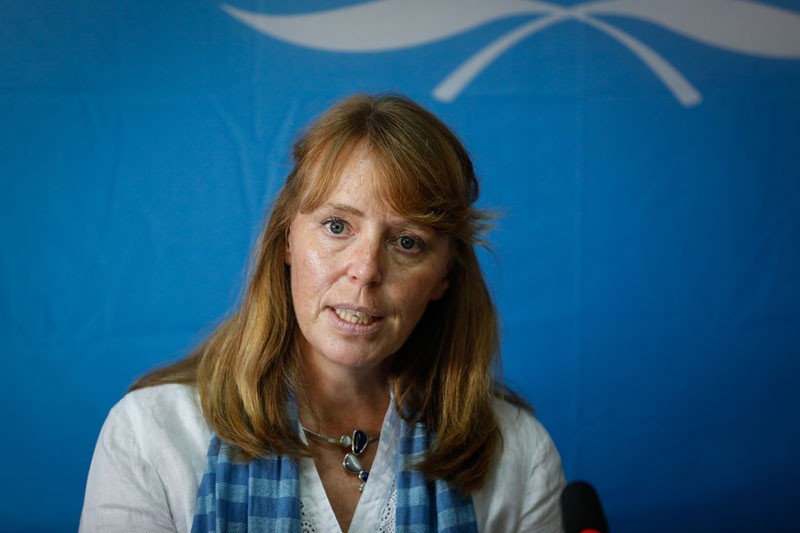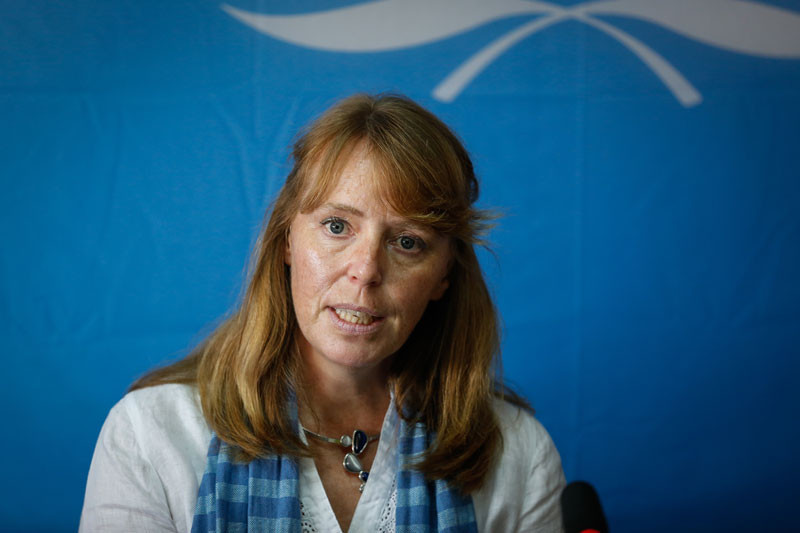The U.N.’s special rapporteur on human rights in Cambodia on Wednesday hit the country with a growing list of criticisms over alleged human rights abuses, which Cambodia parried with the apparent support of neighboring states, including Burma, Laos, Thailand and China.
Rhona Smith, in a presentation at a U.N. Human Rights Council session in Geneva, updated a report previously prepared in May with a litany of concerns over recent political events.

She wrote in May that “without genuine conciliatory efforts by the two main political parties…the situation of human rights in Cambodia could well deteriorate further in the months ahead.”
On Wednesday, she said: “There has undoubtedly been further escalation.”
Doubts about the independence of Cambodia’s justice system are only mounting, Ms. Smith said, with pending cases and convictions disproportionately affecting opposition politicians and rights activists.
She cited the recent convictions of National Election Committee deputy secretary-general Ny Chakrya—over a defamation case originating from his time as a human rights monitor—and deputy opposition leader Kem Sokha.
The apparent targeting of political opponents by the judiciary—opposition leader Sam Rainsy has also been hit with a defamation case and is in self-imposed exile in France—may undermine the credibility of Cambodia’s commune elections next year and general election in 2018, she said.
“The seriousness of this situation cannot be underestimated,” Ms. Smith said, calling on both the CPP and CNRP to cooperate in reducing tensions.
“There is provocation and counterprovocation in the rhetoric of both the main political parties, but during the last election the Cambodian people expressed their support for both those parties and they must therefore work together to serve those who elected them,” she said.
During the morning session, representatives from the E.U. and eight Western states—the Czech Republic, France, Australia, the U.S., Switzerland, Ireland, New Zealand and the U.K.—echoed Ms. Smith’s report and chastised the government over the deteriorating human rights situation, repeatedly calling for jailed rights activists to be freed.
Their comments echoed a joint report endorsed earlier this month by 39 countries censuring the government over recent events in Cambodia.
However, four Southeast Asian states and China gave a contrasting take on the rapporteur’s report.
Mirroring the way that the representatives of Western states repeated that Cambodia’s progress on human rights had been “overshadowed” by rising political tensions, Southeast Asian states used similar wording in “encouraging” the international community to focus on “technical capacity building.”
“We call on the international community to positively engage with Cambodia,” said the representative for Laos, Bovonethat Douangchak.
The Indonesian representative, Acep Somantri, said: “Even a little progress is still an encouraging sign.”
“We all know for a fact that for human rights progress to take effect will take some time. In our view, like in many other countries, Cambodia is trying to combine progress in development and the field of human rights. We’re aware of the challenges,” he said.
China’s Wang Ying said it supported “Cambodia’s choice of a suitable human rights development model and path” and other countries should take “into full account its specific national conditions.”
After the round of comments—including those from nine human rights organizations—Ney Samol, Cambodia’s ambassador to Geneva, gave a closing address reprimanding states that he said leaped to conclusions based on inadequate information.
“They purposely pick and choose a particular page of a book and surmise what the book is all about,” Mr. Samol said.
Discourse around human rights has been exploited and used as a political weapon “to embarrass the government in Cambodia,” he said.
“In conclusion, my delegation is of the view that generalizing the whole image of Cambodia by merely using a single angle is no different from a sightless person confusingly construing the shape of an elephant by the sense of touch.”




